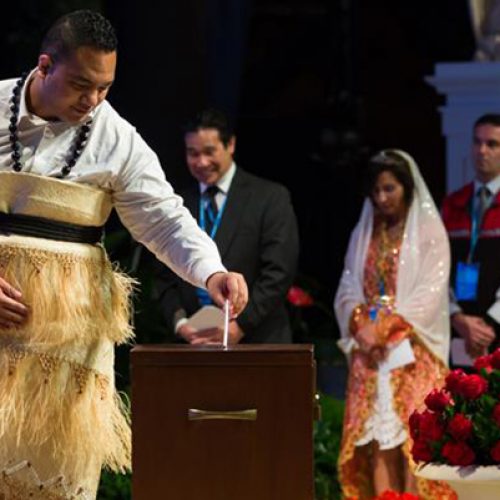The Baháʼí teachings represent a profound synthesis of spiritual truths and universal principles aimed at fostering individual and collective transformation. Central to the Baháʼí faith is the belief in the oneness of humanity, which invites every individual to reassess their understanding of both self and the interconnected world that envelops them. Through exploring the Baháʼí teachings, one may uncover a remarkable paradigm that promises not just knowledge, but a transformative experience that reshapes the very essence of being.
At the heart of the Baháʼí teachings lies the concept of the unity of all religions. This tenet posits that spiritual truth is revealed progressively through a series of divine educators, referred to as Manifestations of God. These individuals, including Jesus, Muhammad, and Bahá’u’lláh, have brought teachings suited to the needs of humanity at different stages of its evolution. Each brings forth a renewed perspective, enriching the collective human experience and encouraging the pursuit of virtue and justice. Such recognition of the common foundations amongst diverse faiths can elicit a profound shift in perspective, inviting practitioners to abandon sectarian biases and embrace a holistic understanding of spiritual reality.
The concept of an evolving universe is critical to the Baháʼí worldview. Far from being static, the reality around us is in constant flux; this flows into the Baháʼí belief that humanity is on a trajectory towards spiritual maturity. This outlook compels individuals to engage with their personal spiritual development in conjunction with the advancement of society as a whole. Embracing this interconnectedness fosters a sense of urgency and purpose that empowers individuals to actively contribute to the betterment of the world. Herein lies an essential teaching: personal fulfillment is inexorably tied to collective progress.
Conversely, the Baháʼí teachings also advocate for the intrinsic value of individual identity. Each person is seen as a distinct manifestation of the divine, possessing unique attributes and potential. The realization of one’s identity is a lifelong journey, a pilgrimage in itself. This path necessitates introspection, encouraging individuals to challenge their preconceived notions of self and redefine their existence from a position of spiritual significance. In doing so, the Baháʼí teachings inspire a sense of clarity and conviction in one’s purpose and engage the individual in a perpetual quest for growth.
The notion of service to humanity is equally seminal within these teachings. Baháʼís believe that existence gains meaning through acts of service and contributions to societal harmony. This ethos transcends mere philanthropic endeavors; it embodies an abstract commitment to the welfare and dignity of all individuals. Such service nurtures a personal connection to the wider human family and fosters a spirit of empathy and understanding. By engaging actively in service, individuals can experience transformative joy, arising from the deep connections cultivated through shared endeavor.
Moreover, the Baháʼí vision extends beyond the individual and incorporates global dimensions. The concept of world peace, as articulated in the teachings, is not merely an aspirational ideal, but a practical goal that can be realized through concerted effort. The grid of interconnectedness among nations underscores the responsibility of every Baháʼí to contribute to global harmony. This aspiration engenders actively seeking solutions that transcend political divides, advocating for justice, equality, and the elimination of prejudice in all its forms. The Baháʼí teachings, therefore, incite a curiosity about methods to transcend differences and unify in the face of challenges.
To further unravel the essence of these teachings, one must explore the spiritual practices embedded within the Baháʼí faith. Prayer and meditation serve as vital components, offering practitioners a means to connect with the divine source. This connection facilitates introspective understanding and spiritual rejuvenation. Such practices invite individuals to delve into the depths of contemplation, fostering a deeper relationship not only with themselves but also with the vast cosmos. The ritualistic approach transforms one’s interior landscape, thereby enhancing the experience of being alive and present in the moment.
Additionally, consultation is a guiding principle within the Baháʼí community, serving as a means for collective decision-making grounded in collective wisdom. This practice emphasizes the importance of unity in diversity, allowing individuals from various backgrounds to contribute their unique perspectives toward communal knowledge. Consultation fosters an environment of collaboration, promoting the idea that out of diversity emerges strength. Hence, the practice serves as an exemplary model for broader societal engagement, encouraging dialogues that bridge ideological gaps.
In conclusion, the Baháʼí teachings encapsulate a rich tapestry of spiritual insights that seamlessly intertwine the individual and collective experience of being. They extend a clarion call to humanity, urging a shift in perspective that champions interconnectedness, dialogue, and mutual service as pathways to profound fulfillment. As one immerses themselves in these teachings, the experience of being transcends mere existence, inviting individuals to partake in an ever-evolving journey toward spiritual enlightenment, unity, and global harmony. The Baháʼí faith, therefore, serves not only as a spiritual refuge but as a catalyst for personal and societal transformation, illuminating pathways that beckon with the promise of a more interconnected and harmonious human experience.
